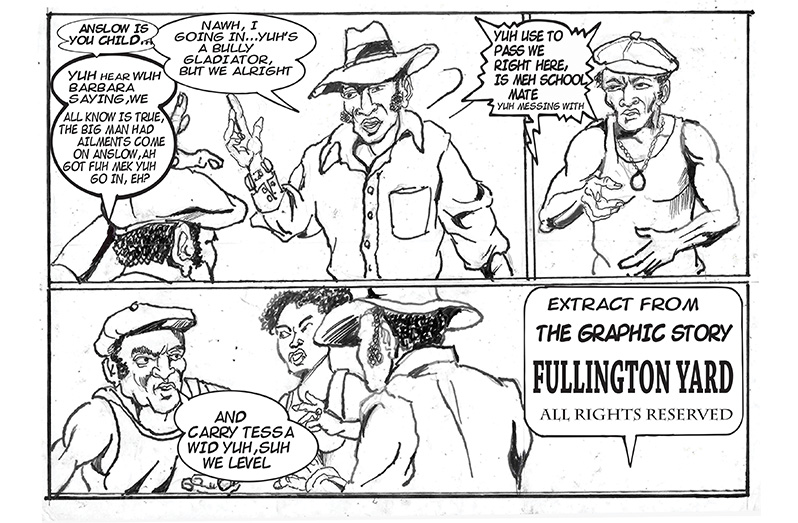THERE were fewer real domestic stories where extreme violence was used, to my memory, in my early youth.
Some had fatal outcomes, but there were violent stories that emerged. I can recall an extreme incident that occurred in the old churchyard in Charlestown, not far from where my great-aunt lived, and another where a man shot his family through a cross street. Those events haunted citizens for years.
Even though they were passed down with less drama, one typical term was featured: “Boy, duh man went mad, he used to look suh too.” With no physical imagery unfolding to recapture either incident, all that followed were the opinions and guesswork of the usual spin doctors, who were great at dramatising incidents. Looking back, it was a shortcoming; almost a pity we couldn’t use their half-truth dramatics for some local stage purpose, for mature entertainment.

I can remember a sibling from one of the incidents would visit my late great-aunt and even my cousins. She was welcome. They knew the visits were connected to her sister’s passing, and they accommodated her as much as they could.
Today, we cannot pretend that domestic incidents are not a significant presence. They are truly too prevalent, most with fatal fallouts that include the innocence of children. With any keen observer, the once-strong institutions that nurtured early manhood and womanhood are no longer prevalent as they were in several radio dramas of our childhood, or the customs that prevailed to regulate young interactions between the admiring boy and the admired girl.
What is influencing our young today is not rooted in the guidelines of respect and values of mutual understanding and responsibility. Talking to a couple I know, we discussed what, within a current budget, could offer some relaxation—time out. They indicated that they had visited a karaoke spot, but even there you have to be cautious of the “dunce thugs” that might pass by lurking. “Deh does got guns, yuh know. Some ah dem suh young, yuh would think that somebody big send dem pon a criminal mission.” Sad, though.
Imagine them in a relationship—young couples that can’t reason too well, getting caught up in conflicts. Suddenly, they’ve got a gun, and the rest is in the newspapers or in the tragedy area on your phone.
They once had mechanisms like the GNS that used to address young people on their own, but all that is gone. “I ent know what else fuh tell yuh.”




.jpg)









